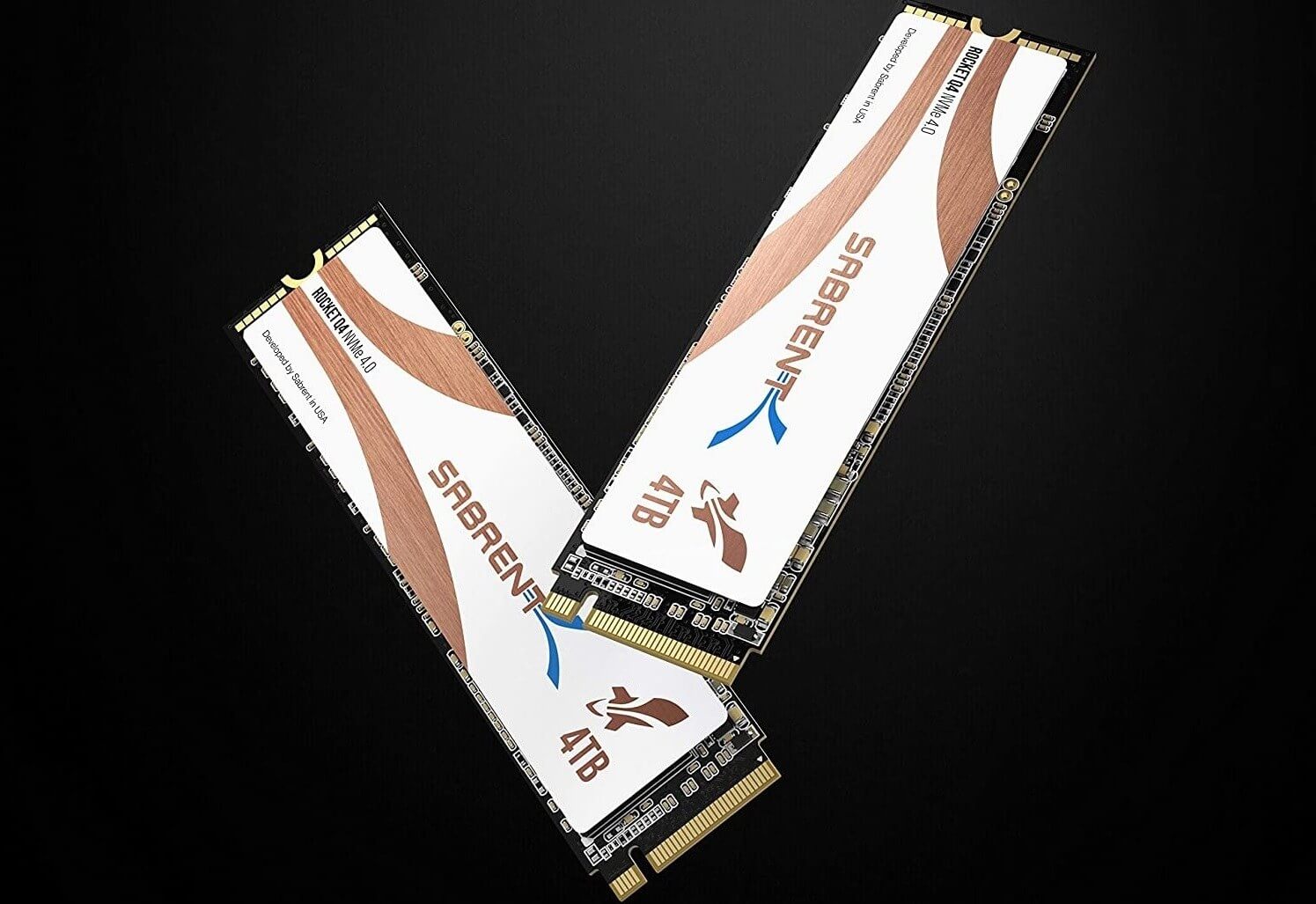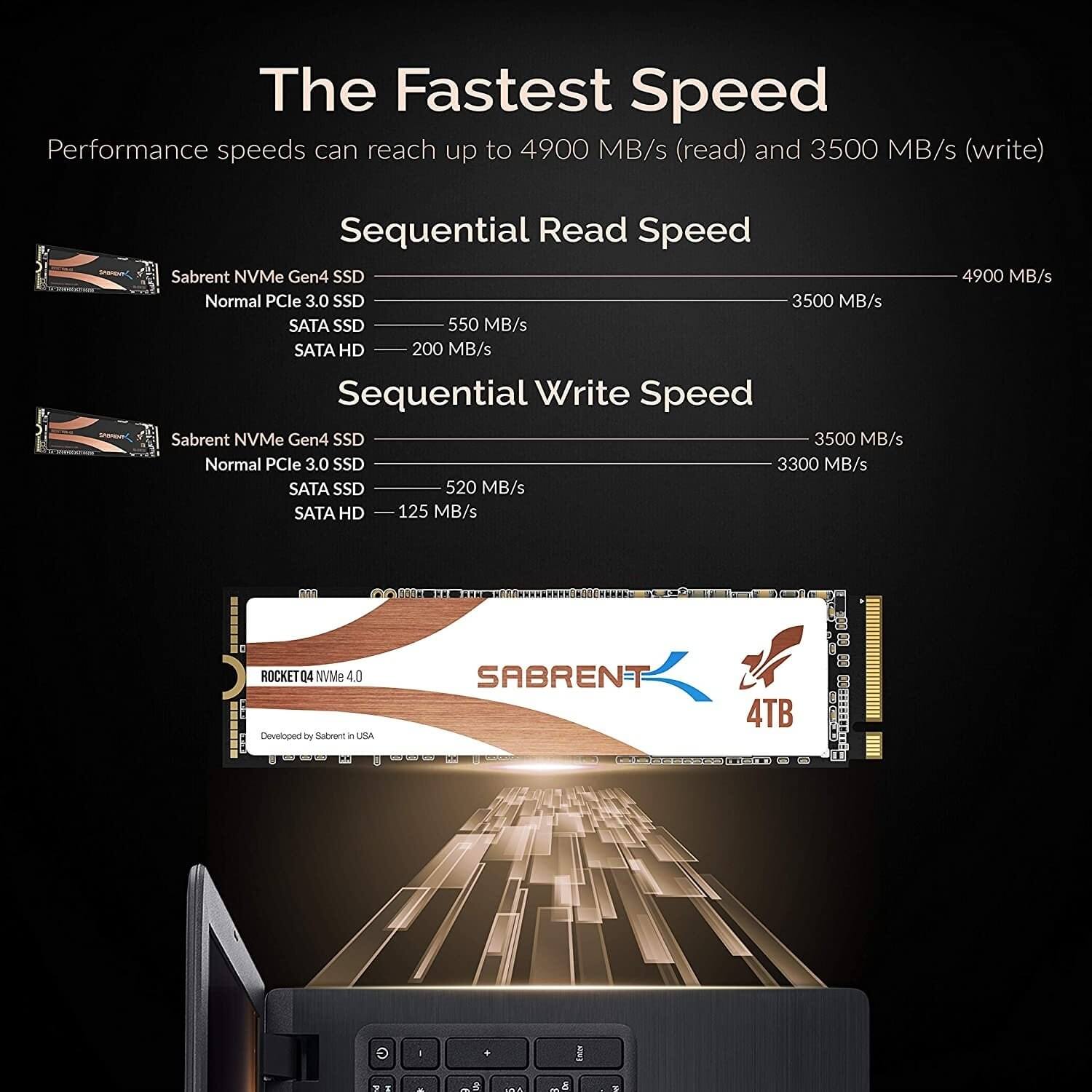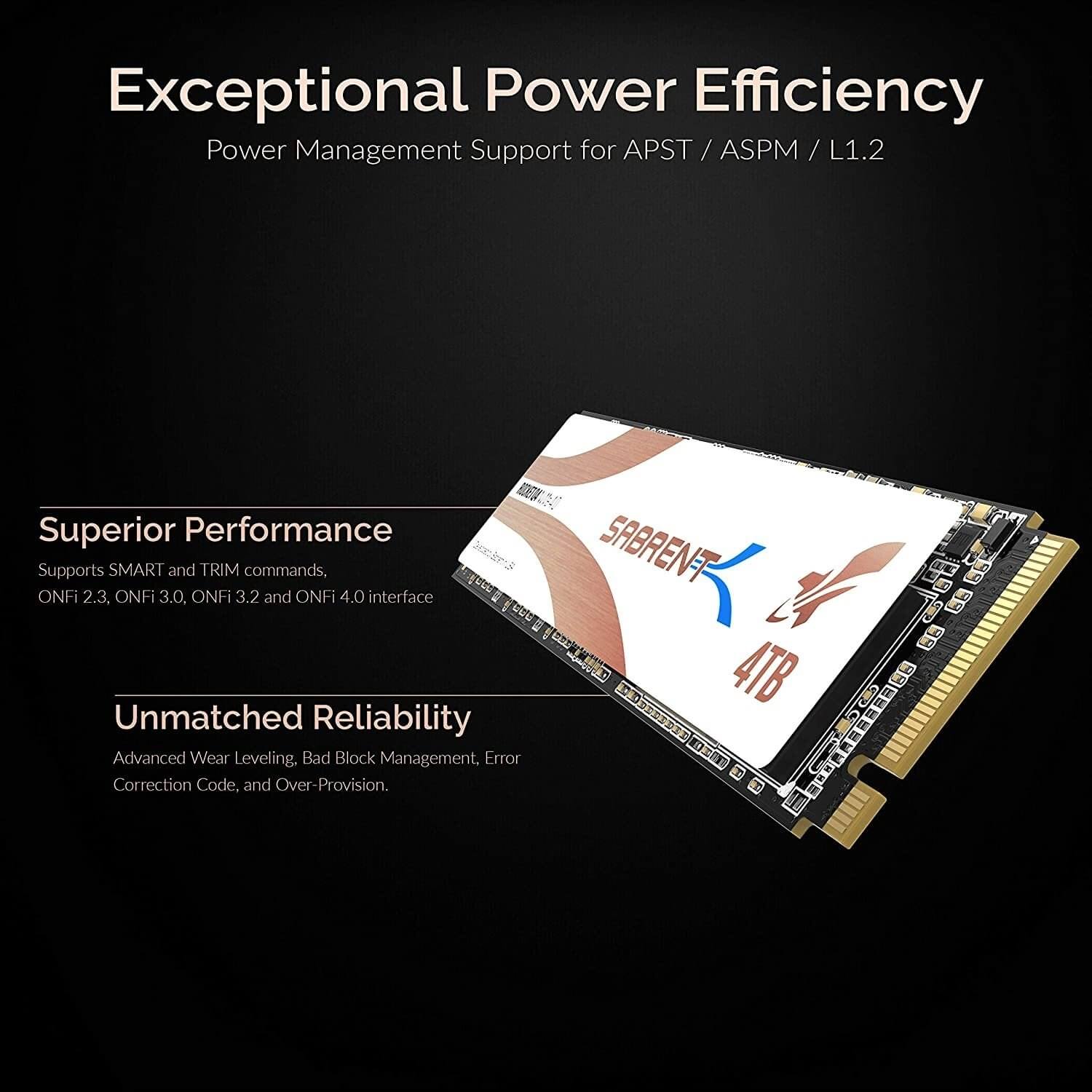What just happened? Sabrent has once again grabbed a world-first in the solid-state drive market. Following on from its 8TB NVMe SSD that ran on the PCIe 3.0 interface, the company is now selling the first-ever 4TB PCIe 4.0 SSD.

It was back in May when Sabrent wowed us with the latest model from its Rocket Q family, which uses Micron's 3D QLC NAND technology to squeeze eight terabytes of speedy storage into an NVMe PCIe 3.0 M.2 SSD. As you might imagine, though, it's expensive: $1,500+
Sabrent's new offering might half the storage space, but it uses a faster interface. TweakTown spotted a listing for the world's only 4TB PCIe 4.0 SSD on Amazon. The latest Rocket Q4 boasts sequential read speeds of up to 4,900 MB/s and write speeds of up to 3,500 MB/s. PCIe 3.0 drives, for comparison, can reach around 3,500MB/s read and 3,300 MB/s write.
Four terabytes of PCIe Gen4 storage does cost a lot—$750, or $769.99 with a heatsink. There's also a 2TB PCIe 4.0 option that costs $400.
Unlike the other size capacities in the Rocket Q4 line, which are based on Toshiba's BiCS4 96L TLC (triple-level cell) NAND Flash memory, the 4TB option is based on QLC technology with 4 bits per cell. There is a 2TB QLC option, though.
Taking advantage of those speeds will require a PCIe 4.0 motherboard, of course, which right now are limited to AMD's X570 and B550 chipsets. And while it is fast, expect to see future PCIe 4.0 SSDs that are even faster—we saw Adata's XPG Sage at CES that promises sequential read and write speeds of over 7,000 and 6,000 MB/s, respectively.
https://www.techspot.com/news/86091-sabrent-selling-world-first-4tb-nvme-pcie-40.html

